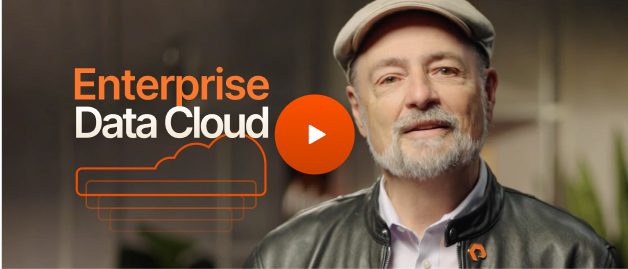エンドユーザー・コンピューティング(EUC)は、ユーザーがリモートで作業するために必要なデータ、アプリケーション、サービスへのリモートアクセスを提供する技術、ポリシー、プロセスです。EUC は、セキュリティや性能を損なうことなく、リモートワークのメリットを全て享受できます。
エンドユーザー・コンピューティングが重要な理由
ビジネス・ネットワークのためのリモート接続は、かつては出張中の従業員の仕事を可能にするための利便性に過ぎませんでした。生産性、俊敏性、耐障害性の向上、柔軟性の向上を目指す組織にとって不可欠な機能となっています。
エンドユーザー・コンピューティングの仕組み
エンドユーザー・コンピューティングでは、企業のデータやアプリケーションはクラウドに存在し、あらゆるデバイスで使用できる仮想デスクトップ・インフラ(VDI)を介して従業員がアクセスします。VDI とアプリケーションの両方をサービスとして使用できます。VDI とアプリケーションが提供するエクスペリエンスは、デバイスや場所に関係なく、全てのワーカーに標準化されています。
エンドユーザー・コンピューティングを可能にするテクノロジー
エンドユーザー・コンピューティングには、以下の技術が使用されています。
- 仮想マシンやコンテナによる仮想化により、組織は基盤となるインフラの詳細を抽象化し、エンドユーザーのハードウェアに依存しずに運用できるEUCソリューションを実装できます。
- クラウド/ハイブリッド・アーキテクチャは、サービスのホスティング、ストレージ、提供のためのより多くのオプションを提供します。
- VDI はクラウドを使用して、個々のデスクトップ環境のプロビジョニングと管理を一元化されたプラットフォームから大規模に実行し、インターネットに接続されたデバイス上のどこからでもアクセスできます。この技術が成熟するにつれ、このようなプラットフォームは、独自のインフラフットプリントと IT 部門の規模を縮小したいお客さまへのサービスとして利用できます。
- サービスとして提供されるクラウドベースのソフトウェア(SaaS)は、エンドユーザー・コンピューティングのためのスタックを完成します。VDI と同様に、リソースやソフトウェアをクラウドに配置することで、エンドユーザーや IT 部門は、より少ないハードウェアでより多くのことを行うことができます。
エンドユーザー・コンピューティングのメリット
エンドユーザー・コンピューティングのメリットには、次のようなものがあります。
モビリティと柔軟性:エンドユーザー・コンピューティングの中核となるメリットは、場所を問わず、個々の従業員、部門や従業員全体をサポートする能力です。
セキュリティ:エンドユーザー・コンピューティング・サービスはクラウドに保存され、一元管理されるため、最も機密性の高いデータもクラウドに保存されるため、ユーザー・デバイスに関連する脆弱性が軽減されます。また、一元管理により、インシデントに迅速に対応し、後で診断することが容易になります。堅牢な認証プロセスが維持されている限り、セキュリティの向上はエンドユーザー・コンピューティングにとってメリットとなります。
俊敏性:エンドユーザー・コンピューティングは、VDI の迅速なスケールアップとスケールダウンを可能にし、あらゆる場所の新規ワーカーに VDI をプロビジョニングします。IT 部門にとって重要なのと同様に、エンドユーザー・コンピューティングは、技術チームが新しいアプリケーションを簡単に導入し、古いアプリケーションを更新、テスト、反復することを可能にします。
コスト: エンドユーザー・コンピューティングは、シンプルな一元管理と、大規模な先行投資を行うのではなく、実際の使用とニーズに基づいて適切なサイズのプロビジョニングを可能にすることで、コスト削減を実現します。さらに、シンクライアント・デバイスのみを提供するか、独自のデバイスの使用を可能にすることで、ハードウェアのコスト削減を実現します。
コラボレーション: コラボレーションのためのエンドユーザー・コンピューティングのメリットは、簡単で安全な共有、シンプルなバージョン管理、同期と非同期の両方の作業をサポートする機能など、クラウド・コンピューティングのメリットと重複しています。
アプリケーション/OS 管理。ソフトウェア・ライセンスの追跡と保守は、複雑で時間がかかる場合があります。エンドユーザー・コンピューティングは、ライセンスをエンドユーザーから切り離し、ライセンス管理を一元化することで、プロセスを簡素化します。また、エンドユーザー・コンピューティングは、エンドユーザーのデバイスを最新の OS アップデートと同期させる負担を軽減します。
エンドユーザー・コンピューティングのためのモダン・インフラ
EUC はまったく新しいものではありませんが、現代の VDI 展開が直面するデータ需要はかつてないほど困難になっています。組織は、それをサポートする基盤となるインフラと同じくらい俊敏です。ピュア・ストレージの VDI ソリューションが、包括的なデータ・サービス、シンプルな管理、容易な拡張性を提供し、近代的な VDI エクスペリエンスを提供します。


